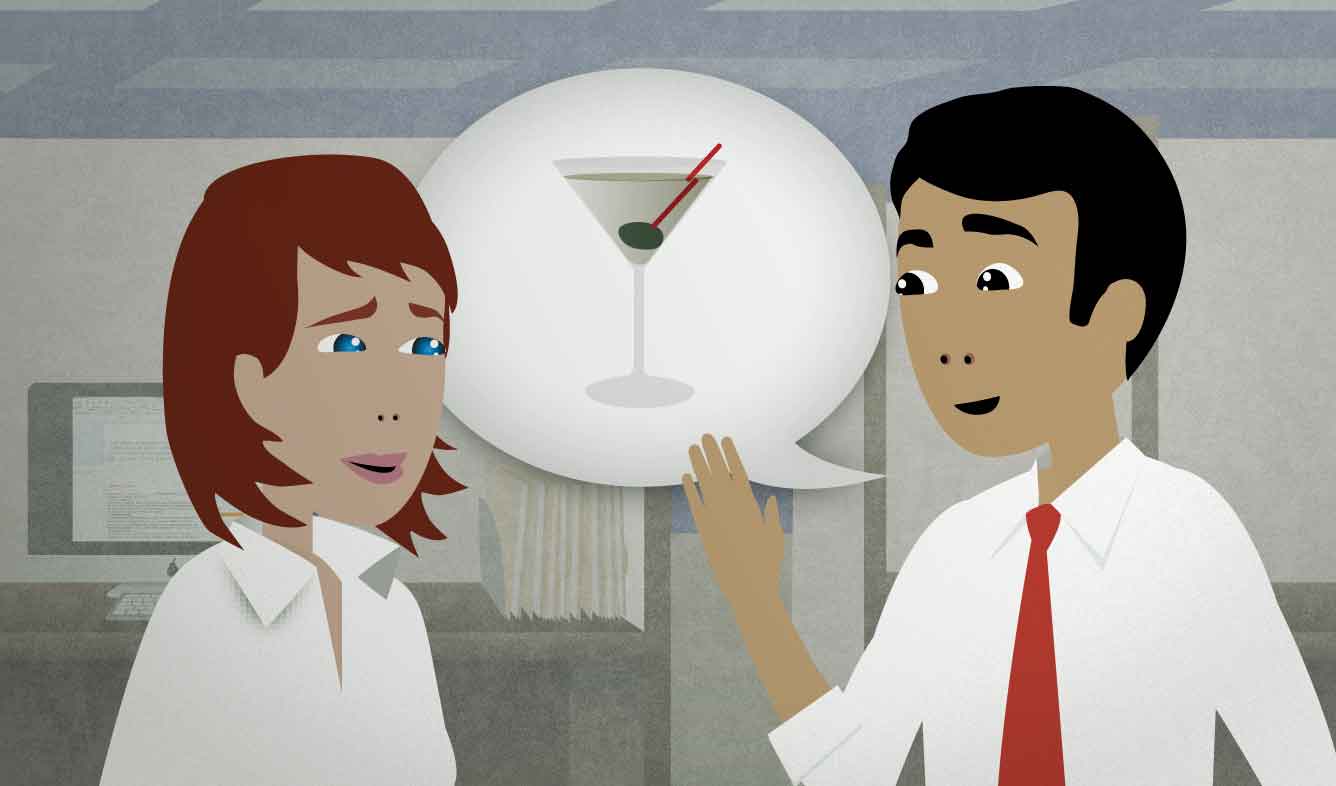“You know, I'd love to, but I can't.”
Your coworker invited you to go out for drinks after work today. You don't want to go, so you say this to decline politely.
You know, I'd love to, but I can't.
Want Video and Sound? Follow us on YouTube

You know,
"You know" is a phrase that introduces a sentence. It has lots of different uses, but one use is to make it sound softer when you have to disappoint someone or say "no" to their request:
A: Hey, do you want to go out for lunch?
A: Do you know which direction Lincoln Avenue is in?
B: You know, I'm not sure.
I'd love to (do something)
Use "I'd love to ___" when someone invites you to do something. The phrase shows that you're excited about it and you want to do it. Here are some examples:
I'd love to join you guys, if you don't mind.
A: Do you want to get together and have a drink some time?
B: I'd love to!
I'd love to, but I can't.
This is a polite and extremely common way to say "no" to an invitation. When someone invites you to do something, but you're busy at that time or don't want to do it, say this phrase and then give a reason:
I'd love to, but I can't. I'm completely broke this week.
I'd love to, but I can't. I have a karate class this evening.
